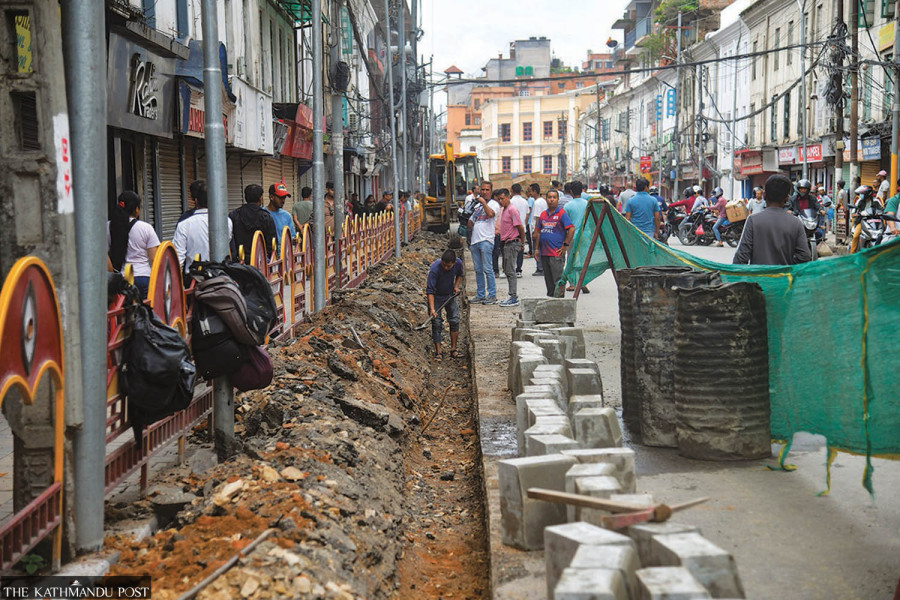Editorial
Over to Balen’s court
He would do well to devise a well-thought-out plan that will benefit the city and its peripheral citizens.
The Kathmandu Metropolitan City has had twin triumphs this week: The Patan High Court has allowed it to continue with its road expansion work in the New Road area that had been halted due to the intervention of the Department of Roads. The KMC’s win in this case is actually a victory for everyone who travels through New Road regularly, or even occasionally. Excessive vehicular movement has for long made New Road an inhospitable and impenetrable city centre. The expansion of the pavements makes it more accessible, peaceful and lively. More importantly, its user-friendliness makes New Road a desirable space for shoppers, leading to added business activities. The New Road businesspersons who have been protesting the KMC’s earnest efforts will appreciate the sensible thoughts put into this action by mayor Balendra Shah once they start reaping the benefits of a green, non-congested and vibrant shopping destination.
Another triumph bestowed on the City by the judiciary is go-ahead for the clearing of squatter settlements, especially in river-side public spaces including on the banks of the Bagmati. In earlier instances, the KMC has been a target of squatters and the public alike for its hasty, even nasty, attempts to forcibly remove the squatters. Its officials even became targets of violent attacks by the squatters, leading the mayor to blame a certain political party for mobilising its cadres. In the past, political parties of various hues have tried to deal with the squatter problem differently, and most of them have failed. Former Prime Minister Baburam Bhattarai seemed somewhat more visionary than others of his ilk, for he had a resettlement camp built outside the Ring Road, in Ichangu Narayan. But his vision, too, turned out to be myopic, as the camp hardly attracted the interest of the intended beneficiaries. The camp outside of the city, which severs the ties of the beneficiaries to economic activities, was of no use.
The Supreme Court on Monday directed authorities to clear the settlements along the banks of the Bagmati and its tributaries in the valley, but only after providing alternative housing for genuine squatters. The court has asked the authorities to identify the actual squatters, transfer them to the camp in Ichangu Narayan, build more houses elsewhere and provide immediate cash relief where necessary. With this, Shah, ever-ready to bring his excavators and bulldozers out to demolish infrastructures deemed illegal, must be excited to resume his previous abortive attempt.
But this time, Shah has more thinking to do before he gets into action, as offering alternatives to the squatters is no cakewalk. He might face resistance once again, for the camp in Ichangu Narayan continues to fail to tempt the squatters genuinely trying to survive in the city on the back of hard work. Moreover, his previous attempts were aimed more at gentrification of the city under his jurisdiction rather than unified urban planning, and a resistance was a given. This time, he would do well to come up with a well-thought-out plan that will be a win-win for the city and its peripheral citizens. Rather than a ‘good versus evil’ fight as some of Shah’s fans have projected the long standoff, it is about finding dignified alternative spaces for thousands of people who are struggling to put a roof over their heads.




 13.12°C Kathmandu
13.12°C Kathmandu














